CBD for our happy hormones – Serotonin, Dopamine, Oxytocin and Endorphins
Can CBD (cannabidiol) have a positive effect on our happy hormones – and how does it affect Serotonin, Dopamine, Oxytocin and Endorphins levels?
Estimated reading time: 22 minutes
- Benefits of CBD for Our Happy Hormones
- Understanding CBD and the Endocannabinoid System
- CBD and Serotonin: A Boost for Mood and Anxiety
- How can CBD help on serotonin levels?
- CBD and Dopamine: Enhancing Reward and Pleasure
- Benefits of CBD for increasing dopamine
- CBD and Endorphins: The Natural Pain Reliever
- Benefits of CBD for Endorphins
- CBD and Oxytocin – Our calm and happy place
- Benefits of CBD for Oxytocin
- CBD and GABA: Calming the Nervous System
- How can CBD effect GABA
- Incorporating CBD into Your Routine
- Best CBD for you to increase your happy hormones!
- Conclusion – CBD for happy hormones
- FAQ – CBD for our happy hormones – Serotonin, Dopamine, Oxytocin and Endorphins
- The Real CBD for our happy hormones
Benefits of CBD for Our Happy Hormones

In our busy world, it's more important than ever to discover natural and effective ways to boost our well-being.
In the world of natural remedies, Cannabidiol (CBD), derived from the Cannabis Sativa plant, stands out for its remarkable influence on our happiness hormones. This article explores the numerous advantages of CBD and how it positively affects both our mental and physical well-being.
Understanding CBD and the Endocannabinoid System
CBD is a non-psychoactive compound found in cannabis plants. Unlike THC, CBD does not cause a ‘high'.
CBD teams up with the body's endocannabinoid system (ECS), which has a vital job in controlling our mood, pain, hunger, and memory. The ECS is made up of receptors all over the body, and CBD affects these receptors, helping to create a sense of balance, or what we call “homeostasis,” within our body.
CBD for happy hormones – Serotonin, Dopamine, Oxytocin and Endorphins
CBD and Serotonin: A Boost for Mood and Anxiety
What is Serotonin?
Serotonin is a chemical produced by the human body, functioning primarily as a neurotransmitter. It is also called the “happy chemical” because of its significant role in promoting a sense of well-being and happiness. Here is a bit more about serotonin:

- Chemical Nature: We make serotonin from the essential amino acid tryptophan, which enters the body through diet and then converted into serotonin.
- Role in the Body: It plays a multifaceted role, affecting various body functions. Primarily, it helps regulate mood, but it also affects digestion, sleep, bone health, and blood clotting.
- Mood Regulation: We know serotonin for its influence on mood. Low levels of serotonin are often associated with mood disorders like depression and anxiety.
Further information
- Sleep Regulation: It helps regulate the body's sleep-wake cycles and the internal clock or circadian rhythm.
- Digestive Function: Interestingly, a majority of serotonin (about 95%) which is produced in the gastrointestinal tract helps control bowel movements and function.
- Bone Health: Serotonin plays a role in bone density. High levels of serotonin in the bones can lead to decreased bone density.
- Blood Clotting: It is released by platelets in the event of a wound, helping to reduce blood flow and form clots.
- Medications Targeting Serotonin: Many antidepressants, known as selective serotonin reuptake inhibitors (SSRIs), work by increasing serotonin levels in the brain.
Keep in mind that while serotonin has a significant impact on mood and various bodily functions, it's just a single piece of a complex system of neurotransmitters and other chemicals that influence your overall health and well-being.
One of the key happy hormones affected by CBD is serotonin, often referred to as the ‘feel-good' neurotransmitter. Serotonin regulates mood, and its deficiency leads to depression and anxiety. CBD has shown promise in enhancing serotonin receptor activity, leading to improved mood and a reduction in anxiety symptoms.
How can CBD help on serotonin levels?
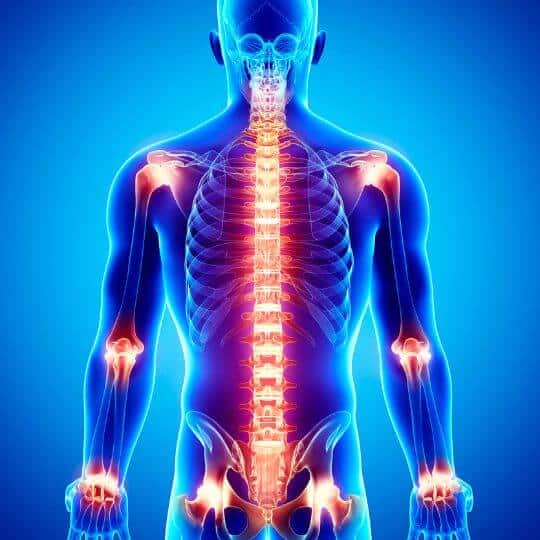
CBD has effects on serotonin levels, which can positively affect mood and anxiety.
Factual
- Interaction with Serotonin Receptors: CBD may not directly increase serotonin levels, but it seems to influence how your brain's chemical receptors react to the serotonin already present. Specifically, CBD binds to and activates the 5-HT1A serotonin receptor, playing a major role in anxiety disorders.
- Anxiety and Depression Management: By influencing serotonin receptors, CBD may have antidepressant and anti-anxiety effects. Many people with depression and anxiety have turned to CBD as a natural alternative to pharmaceuticals like SSRIs, though it's important to consult with a healthcare provider before making any changes to treatment plans.
- Indirect Effects on Mood: While directly affecting serotonin levels, CBD may also influence mood and anxiety through other mechanisms, such as its anti-inflammatory properties or its ability to induce relaxation and improve sleep.
- Neurogenesis: Some studies suggest that CBD may promote neurogenesis, particularly in the hippocampus, an area of the brain associated with emotions and memory. Neurogenesis (the formation of new neurons) can affect serotonin levels and contribute to an improved mood.
- Stress Reduction: By reducing stress and improving mood, CBD may indirectly support serotonin production. Chronic stress deplete serotonin levels, so by mitigating stress, CBD could potentially help maintain adequate serotonin.
Note!
It's crucial to grasp that while CBD exhibits promise in its ability to influence serotonin levels, it should not be seen as a replacement for professional medical treatment when addressing mood disorders.
CBD and Dopamine: Enhancing Reward and Pleasure
What is dopamine?
Dopamine is another happy hormone influenced by CBD. It is associated with feelings of pleasure and reward. CBD's interaction with the ECS can help in regulating dopamine levels, which is beneficial for conditions like depression and Parkinson's disease.
Benefits of CBD for increasing dopamine
CBD (cannabidiol) has been studied for its potential role in influencing dopamine levels in the brain, a neurotransmitter that plays a key role in various bodily functions including mood, memory, motivation, and reward. Understanding how CBD might affect dopamine is crucial, as it could offer insights into how it may benefit certain conditions or aspects of mental health. Here are some potential benefits of CBD in relation to increasing dopamine:
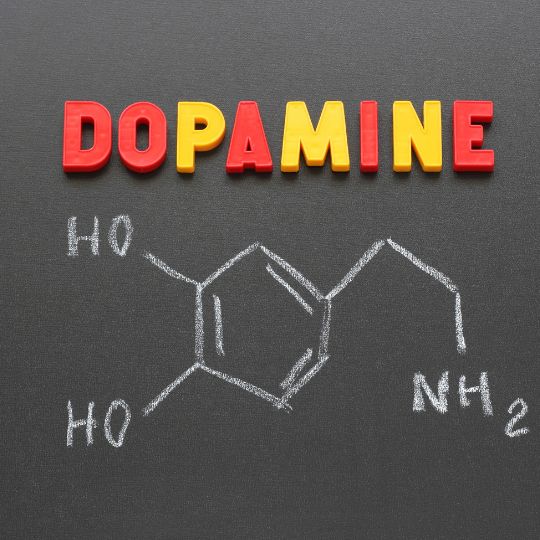
- Regulation of Dopamine Levels: CBD may help in regulating dopamine levels. It does not necessarily increase dopamine levels directly but may influence the brain's dopamine receptors. By modulating these receptors, CBD could potentially help maintain optimal dopamine levels, contributing to improved mood and cognitive function.
- Impact on Reward and Pleasure: Dopamine is often known as the “feel-good” neurotransmitter because it is associated with feelings of pleasure and reward. CBD's interaction with dopamine receptors might enhance these feelings, potentially helping people with mood disorders or lack of motivation.
- Enhanced Cognitive Function: Dopamine plays a crucial role in cognitive processes like attention and memory. By potentially influencing dopamine levels, CBD could help in improving cognitive functions, especially in conditions like ADHD, where dopamine dysregulation is often observed.
And a bit more…
- Reduction in Symptoms of Psychiatric Disorders: Some studies suggest that CBD might be beneficial in managing symptoms of psychiatric disorders like schizophrenia, which are often characterized by dopamine dysregulation. CBD might help balance dopamine levels without the significant side effects often associated with traditional antipsychotics.
- Addiction and Dependency Treatment: CBD may aid in the treatment of addiction and dependency, as it could modify the circuits in the brain related to drug addiction. It might help in reducing the dopamine-driven reward seeking behaviour often seen in addiction.
- Stress and Anxiety Management: Stress and anxiety can adversely affect dopamine levels. CBD is known for its calming effects, which might indirectly support the maintenance of healthy dopamine levels by reducing stress and anxiety.
- Neuroprotective Properties: CBD's neuroprotective properties could also benefit dopamine neurons, which might be particularly relevant for neurodegenerative diseases like Parkinson's disease, where dopamine-producing neurons are progressively lost.
CBD and Endorphins: The Natural Pain Reliever
What are endorphins?
Endorphins are natural substances produced in the brain, serving as neurotransmitters. They are frequently known as the body's “feel-good” chemicals because they have the potential to induce a positive sensation in the body, akin to the effects of morphine.

Here are some key points about endorphins:
- Pain Relief and Stress Reduction: One of the primary functions of endorphins is to relieve pain and reduce stress. When the body experiences pain or stress, it responds by producing endorphins, which bind to opioid receptors in the brain, reducing the perception of pain.
- Mood Enhancement: Endorphins are known for their mood-boosting properties. They can produce feelings of euphoria and general well-being, which is why activities such as exercise, laughter, and certain foods that increase endorphin levels can make you feel happier.
What more do we know?
- Exercise and Endorphins: Physical activity is a well-known trigger for endorphin release. This is sometimes referred to as the “runner's high,” a rush of good feelings that happens after prolonged, vigorous exercise.
- Stress Response: In response to stress, the body releases endorphins to help manage the discomfort and potential pain associated with stress. This can lead to a feeling of calmness and well-being after a stressful event.
- Immune System Regulation: Endorphins also play a role in the immune system. They help regulate the function of cells that are responsible for fighting off pathogens and disease.
- Natural Reward Circuits: Endorphins are part of the brain's reward system – they are released during pleasurable activities, reinforcing the activity that caused the endorphin release. This mechanism can encourage behaviours that are beneficial to health and well-being.
- Role in Mental Health: Some mental health conditions, such as depression and anxiety, have been linked to low levels of endorphins. Treatments that increase endorphins, such as exercise and certain types of therapy, can help alleviate symptoms of these conditions.
Endorphins are a natural and important part of the body's ability to manage pain and stress, and they contribute significantly to our overall sense of well-being. Understanding how to naturally boost endorphins can be a key element in maintaining mental and physical health.
Benefits of CBD for Endorphins
Here is how CBD might influence endorphins and their associated benefits:
- Pain Management: One of the most significant potential benefits of CBD is its role in pain relief. While CBD does not directly increase endorphin levels, it may enhance the body's response to pain, partly by interacting with the endocannabinoid system (ECS), which can modulate pain perception. This interaction can help the body use its endorphins more effectively.
- Stress Reduction: CBD is known for its calming effects and its ability to reduce anxiety and stress. Stress and pain can inhibit the production and effectiveness of endorphins. By reducing stress and pain, CBD might indirectly promote the activity of endorphins.

Furthermore – CBD for happy hormones
- Exercise and Recovery: CBD may aid in exercise recovery. While exercising increases endorphin levels (known as the “runner's high”), CBD's anti-inflammatory properties might help with post-exercise recovery, making it easier to engage in regular physical activity, which in turn can boost endorphin levels.
- Mood Enhancement: Since endorphins are linked to mood and happiness, the use of CBD to support the body's natural pain and stress responses can indirectly contribute to a better mood and a sense of well-being.
- Improved Sleep Quality: Good sleep is crucial for the optimal production and regulation of endorphins. CBD has been found to aid in improving sleep quality by addressing issues such as anxiety and pain, which can interfere with restful sleep.
- Enhancing the Placebo Effect: Some research suggests that CBD might enhance the placebo effect, a psychological phenomenon where a person experiences a benefit after taking a substance because they expect it to work. This expectation can stimulate endorphin release, contributing to pain relief and mood improvement.
It is important to note that while the potential benefits of CBD on the endorphin system are promising, more research is needed to fully understand these interactions. Additionally, CBD should be seen as a supplement to other healthy lifestyle choices that naturally boost endorphin levels. Naming exercise, laughter, and engaging in enjoyable activities. As always, consult with a healthcare professional before starting any new supplement regimen, especially if you have existing health conditions or are taking other medications.
CBD and Oxytocin – Our calm and happy place
Oxytocin is a hormone and a neurotransmitter that plays a crucial role in various aspects of human behaviour and physiology. Often referred to as the “love hormone” or “bonding hormone,” it is well known for its significant role in social bonding, sexual reproduction, childbirth, and the period following childbirth. Here are some key aspects of oxytocin:
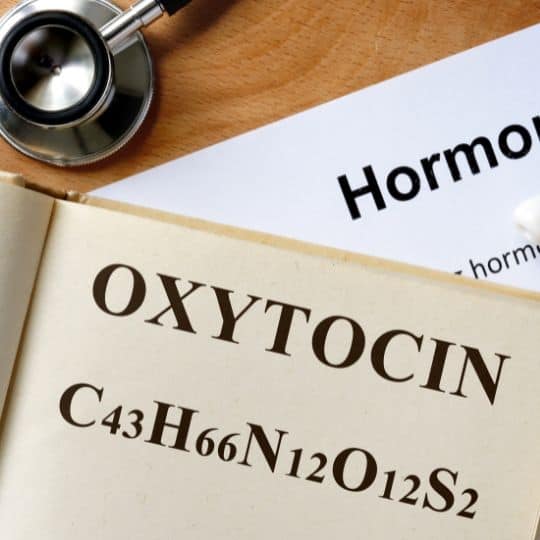
- Social Bonding: Oxytocin is famous for its role in promoting social bonds. It is released in high amounts during activities that enhance relationships, such as hugging, kissing, and sexual activity. It is thought to facilitate trust and attachment between individuals.
- Role in Childbirth: During labour, oxytocin levels increase, which helps induce contractions in the uterus. It plays a critical role in facilitating childbirth.
- Postpartum Period: After childbirth, oxytocin helps with the delivery of the placenta and promotes bonding between the mother and the new-born. It also stimulates the mammary glands to produce milk for breastfeeding.
More happieness with CBD for happy hormones
- Emotional Response and Empathy: Oxytocin is believed to affect emotional responses and the ability to empathize with others. It can enhance positive social interactions and may help reduce anxiety and fear.
- Sexual Activity: Oxytocin is released during sexual activity and is associated with increased feelings of contentment, closeness, and bonding between sexual partners.
- Stress Reduction: Oxytocin has been shown to have a calming effect, potentially reducing stress levels and lowering blood pressure. It is often contrasted with stress hormones like cortisol.
- Healing and Pain Relief: There is evidence to suggest that oxytocin can contribute to wound healing and pain relief, possibly due to its anti-inflammatory properties.
- Psychological and Behavioural Effects: Oxytocin might play a role in various psychological states and behaviours, including trust, generosity, and empathy, making it a subject of interest in psychological and neuroscientific research.
Although the positive impacts of oxytocin on social bonding and stress are well-documented, it's crucial to recognize that its influence can significantly differ from one person to another and in various situations. The hormone's complexity and its interaction with other neurotransmitters and hormones make it a fascinating subject for ongoing research in both social and biological sciences.
Benefits of CBD for Oxytocin
CBD (cannabidiol) may influence the levels and activity of oxytocin. A hormone known for its crucial role in social bonding, stress reduction, and overall emotional well-being. Here is a look at how CBD could potentially benefit oxytocin-related functions in the body:

- Stress and Anxiety Reduction: CBD is known for its potential in reducing anxiety and stress. Since stress can inhibit the production and effectiveness of oxytocin, CBD's stress-reducing properties may indirectly support the body's ability to produce and utilize oxytocin more effectively.
- Boosting Social Connections: Oxytocin is commonly referred to as the “love hormone” or “social bonding hormone” because it plays a role in improving social interactions and emotional connections. While we don't fully grasp how CBD directly impacts oxytocin production, its anxiety-reducing and calming qualities may foster a friendly atmosphere for social engagement, potentially encouraging the body's natural release of oxytocin.
- Improving Emotional Well-being: By potentially aiding in the regulation of mood and reducing anxiety, CBD might create conditions conducive to the natural release of oxytocin, thereby enhancing emotional bonding and well-being.
And more inportant
- Pain Relief and Comfort: Oxytocin also plays a role in pain relief and promoting feelings of comfort. CBD's pain-relieving properties might complement oxytocin's natural pain management role, leading to enhanced overall comfort and well-being.
- Support for Postpartum Women: Postpartum women often experience fluctuations in hormonal levels, including oxytocin. This can impact mood and bonding with the new-born. There is limited research on CBD's direct impact on postpartum women. Its potential benefits in mood regulation and stress relief could indirectly support oxytocin's role during this critical period.
- Potential Neuroprotective Effects: CBD has shown potential neuroprotective properties. Since oxytocin has various neural functions, CBD's neuroprotective effects might support the brain's oxytocin pathways.
It is important to note that the research on CBD's effects on oxytocin levels and activity is still evolving. While preliminary studies and anecdotal evidence suggest potential benefits, more scientific research is required to understand these interactions fully. As always, consulting with a healthcare professional before starting any new supplement, especially for people with existing health conditions or who are taking other medications, is advisable.
CBD and GABA: Calming the Nervous System
What is GABA?
GABA (Gamma-Aminobutyric Acid) is a crucial neurotransmitter in the brain, known primarily for its inhibitory function in the central nervous system. It plays a significant role in regulating neuronal excitability throughout the nervous system. Here are some key aspects of GABA:
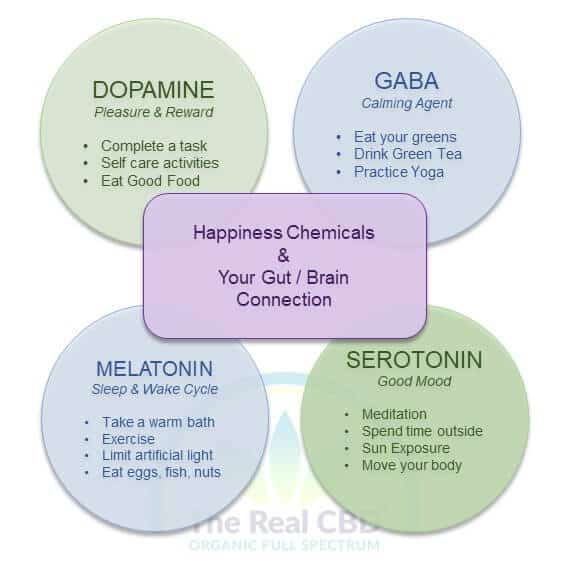
- Inhibitory Neurotransmitter: GABA is the primary inhibitory neurotransmitter in the brain. This means it helps to reduce the activity of neurons. Preventing over-excitation and maintaining a balance with excitatory neurotransmitters like glutamate.
- Role in Brain Function: By inhibiting neural activity, GABA contributes to various aspects of brain function, including mood regulation, stress management, and sleep. It helps to calm the brain, which can aid in relaxation and reduce feelings of anxiety.
- Regulation of Muscle Tone: Apart from its role in the brain, GABA also influences muscle tone in the body. An imbalance in GABA levels can affect muscle control and lead to conditions like spasticity.
Its all in the head – CBD for happy hormones
- Sleep and Relaxation: GABA plays a critical role in sleep. It helps to induce relaxation and sleepiness, and its levels typically increase in the brain just before sleep.
- Effect on Anxiety and Stress: Due to its inhibitory properties, GABA is closely related to the regulation of anxiety and stress responses. Medications that increase GABA activity in the brain, such as benzodiazepines, are often used to treat anxiety and panic disorders.
- Mental Health Implications: Imbalances in GABA levels have been linked to various mental health conditions, including depression, anxiety, and epilepsy. Treatments aimed at modifying GABA levels can be effective in managing these conditions.
- Natural Sources and Supplements: GABA can also be found in certain foods and is available as a dietary supplement. However, the effectiveness of dietary GABA in influencing brain levels is a subject of ongoing research.
In summary, GABA is a fundamental neurotransmitter that helps regulate brain and nervous system activity. Playing a vital role in maintaining mental and physical health. Its inhibitory effects are essential for a calm, balanced nervous system.
How can CBD effect GABA
CBD (cannabidiol) may influence the function of GABA (gamma-aminobutyric acid). This is a key neurotransmitter in the brain known for its role in inducing calmness and relaxation. Understanding CBD's interaction with GABA can shed light on how it potentially contributes to its calming effects. Here you can find an explanation of this interaction:
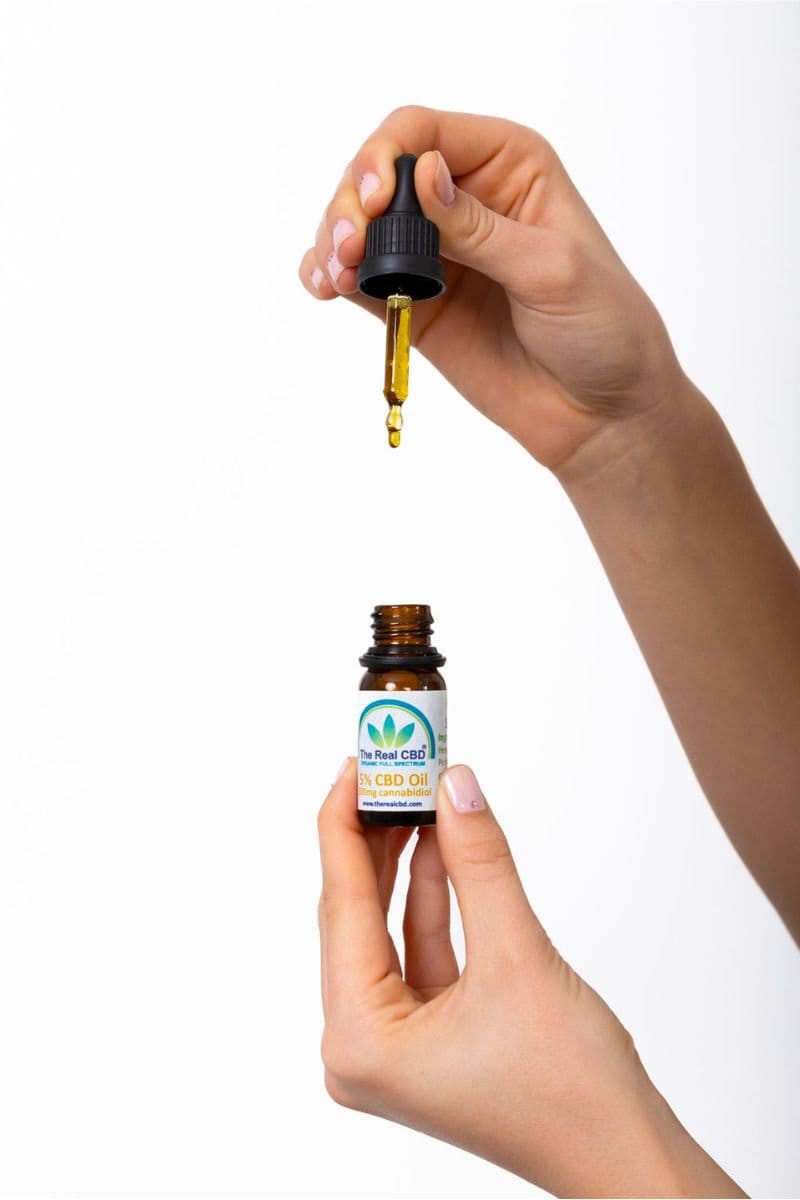
- GABA's Role in the Brain: GABA is an inhibitory neurotransmitter, meaning it reduces the likelihood of a neuron firing. It acts as a “brake” to excitatory neurotransmitters that lead to stimulation. Adequate GABA activity is crucial for maintaining a balanced state in the brain, helping to prevent overexcitement or agitation.
- CBD and GABA Receptors: CBD does not directly bind to GABA receptors like certain pharmaceuticals (e.g., benzodiazepines) do. However, research suggests that CBD may enhance the efficacy of GABA by influencing how it binds to its receptors. Essentially, CBD might help GABA to more effectively exert its calming effects.
- Anxiety and Stress Reduction: Many people use CBD for its potential to alleviate anxiety and stress. Part of this effect may be due to its interaction with GABA receptors. We know GABA plays a significant role in regulating anxiety and mood. By enhancing GABA's efficacy, CBD may help reduce feelings of anxiety and promote relaxation.
Indirect effects
- Potential Indirect Effects: CBD's interaction with the endocannabinoid system (ECS) could indirectly affect GABA levels. The ECS plays a crucial role in maintaining balance in the body, including the regulation of neurotransmitter function. By modulating the ECS, CBD might indirectly influence GABAergic activity.
- Neuroprotective Properties: CBD's potential neuroprotective properties could benefit the GABAergic system as well. By protecting neural health and function, CBD may support the optimal functioning of GABA and other neurotransmitters.
- Sleep Improvement: GABA is also involved in sleep regulation. CBD has potential to enhance GABAergic action might contribute to its sleep-promoting effects, helping address issues like insomnia.
It is important to recognize that while the potential impact of CBD on GABA and its related effects are promising, the exact mechanisms and extent of these interactions are still subjects of ongoing research. Moreover, you should not consider CBD to be a direct substitute for prescribed GABAergic medications. Always consult with a healthcare professional before using CBD. Especially if you are taking other medications or have underlying health conditions.
Incorporating CBD into Your Routine
Incorporating CBD into your daily routine is done in various forms, such as oils, capsules, edibles, and topicals. It is essential to start with a low dose and gradually increase. It is to find the optimal amount that works for your body.
More about CBD
Best CBD for you to increase your happy hormones!
Choosing the best CBD product to increase your “happy hormones” – like serotonin, dopamine, and endorphins – involves considering several factors, including the quality, type, and concentration of CBD. Here is a guide to help you select a suitable CBD product:
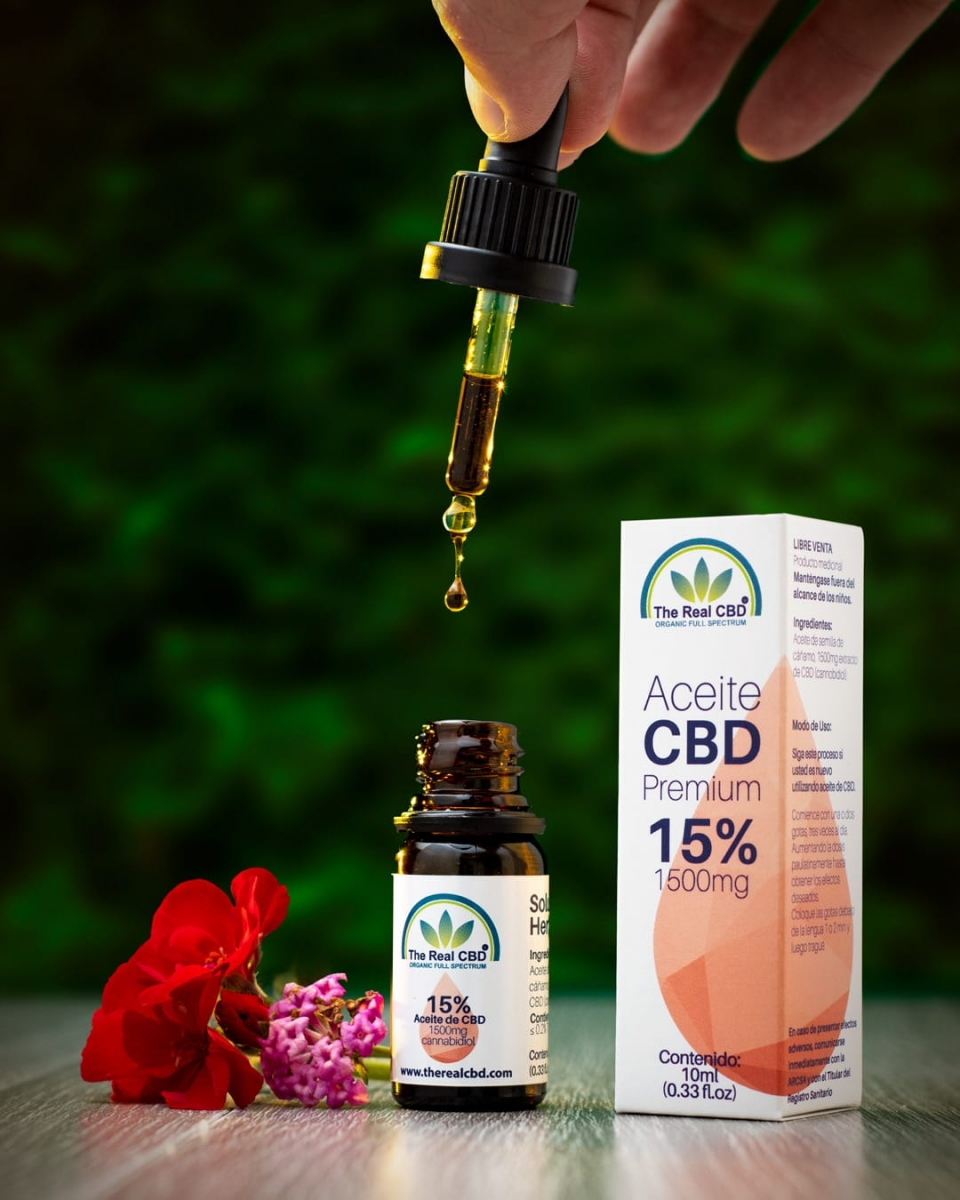
- Full-Spectrum CBD: Opt for full-spectrum CBD products. They contain a range of cannabinoids, terpenes, and other compounds found in the cannabis plant. These components work together in what is known as the “entourage effect,” potentially enhancing the overall benefits of the product. Full-spectrum CBD may be more effective in influencing mood and stress levels compared to CBD isolate.
- High-Quality Source: Ensure the CBD is sourced from high-quality, organically grown hemp. Look for products that use hemp from reputable sources and have transparent farming practices.
- Third-Party Lab Testing: Choose products that are third-party lab tested and provide Certificates of Analysis (COAs). This testing confirms the product's cannabinoid content and ensures it is free from harmful contaminants like pesticides, heavy metals, and moulds.
More to look out for!
- Appropriate Concentration: CBD products come in various concentrations. If you are new to CBD, start with a lower concentration. Then gradually increase until you find a dose that works for you. Remember, the optimal dosage can vary significantly from person to person.
- Method of Consumption: Consider the method of consumption that works best for you. Options include oils and tinctures (for sublingual use), capsules, edibles (like gummies), and topical creams. Sublingual oils can absorb quicker and have more direct effects on mood and stress compared to edibles.
- Reputable Brand: Choose a brand with a strong reputation for quality and customer satisfaction. Read reviews and testimonials to gauge the effectiveness of their products.
- Consultation with Healthcare Professionals: It is important to consult with a healthcare provider before starting CBD. Especially if you are on medication, have underlying health conditions, or are looking for specific health benefits.
- Compliance with Regulations: Ensure the product complies with local and federal laws regarding CBD and THC content. In many regions, CBD products must contain less than 0.2% THC to be legally sold.
Keep in mind that while CBD is thought to offer potential advantages for mood and stress. However, it is not a magical remedy for all. The effectiveness of CBD may differ. It should be incorporated as part of a holistic approach to well-being. Includes maintaining a healthy lifestyle and, if needed, seeking professional mental health assistance.
Conclusion – CBD for happy hormones
CBD's influence on the body's happy hormones presents a natural and holistic approach to enhancing mental and physical wellbeing. By interacting with the endocannabinoid system, CBD helps regulate mood, pain, sleep, and stress, making it a valuable addition to a wellness routine.
FAQ – CBD for our happy hormones – Serotonin, Dopamine, Oxytocin and Endorphins

CBD interacts with serotonin receptors in the brain, specifically the 5-HT1A receptor. While it does not directly increase serotonin levels, it affects how brain receptors respond to existing serotonin. Potentially enhancing mood and reducing anxiety symptoms. It is a natural alternative to traditional antidepressants. However consultation with a healthcare provider is advised before altering any treatment plans.
CBD may regulate dopamine levels by modulating dopamine receptors. It is not a direct dopamine booster but can help maintain optimal dopamine levels. Contributing to improved mood, enhanced pleasure and reward sensations, and better cognitive functions. It is potential in managing psychiatric disorders and addiction, where dopamine plays a key role, is also being explored.
CBD does not directly increase endorphin levels but may enhance the body's response to pain and stress. By interacting with the endocannabinoid system, CBD can modulate pain perception, helping the body use its endorphins more effectively. Its calming effects can also indirectly promote endorphin activity, aiding in pain relief and stress reduction.
2 FAQ more
Direct effects of CBD on oxytocin production are not fully understood. However, its anxiolytic and calming properties may create a conducive environment for social interaction. Possibly facilitating the natural release of oxytocin. By reducing anxiety and stress, CBD might support the body's ability to produce and utilize oxytocin. Enhancing emotional bonding and well-being.
CBD may enhance the efficacy of GABA (Gamma-Aminobutyric Acid) by influencing how it binds to its receptors. CBD might not bind directly to GABA receptors, but it could enhance the calming effects of GABA more effectively. This interaction could be part of why many people find CBD helpful. Reducing anxiety, promoting relaxation, and improving sleep quality.
The Real CBD for our happy hormones

I am a certified expert in Medicinal Cannabis. We are all about giving correct and trustworthy information. We know how important it is to learn about CBD and cannabis, which is why we want to be your go-to source for trustworthy information. We help you improve your health by using our knowledge and experience as a starting point.





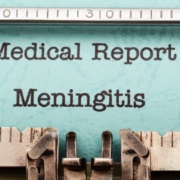








Leave a Reply
Want to join the discussion?Feel free to contribute!